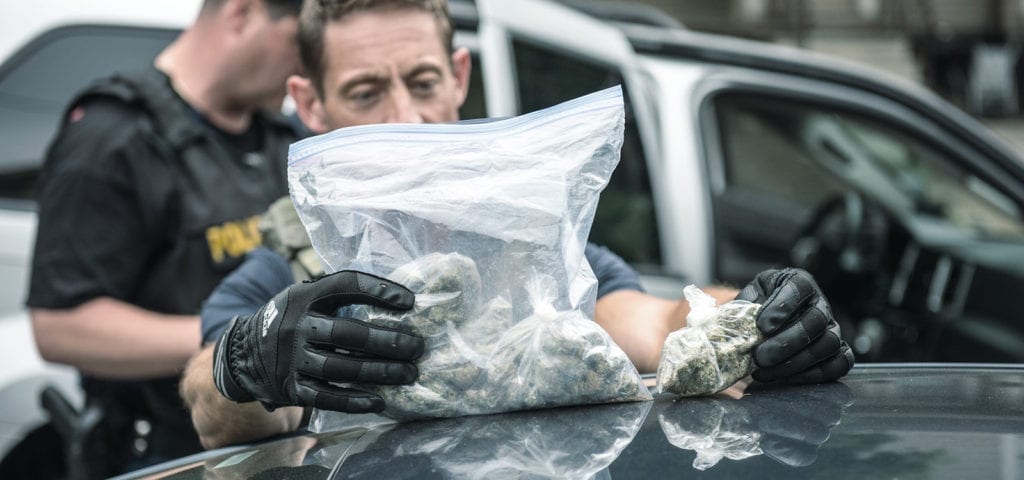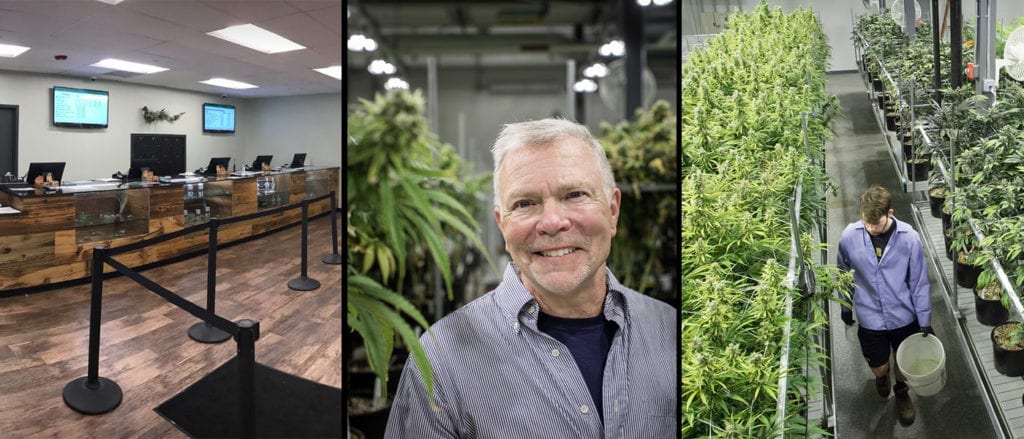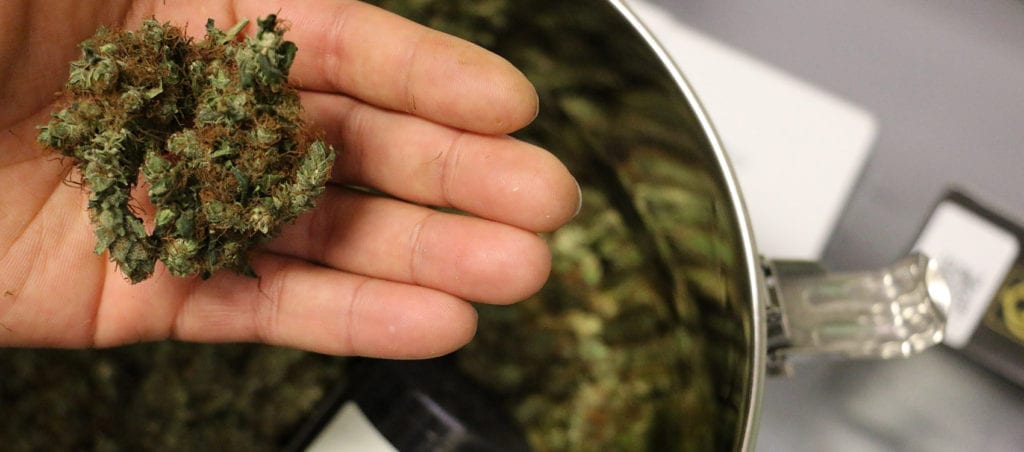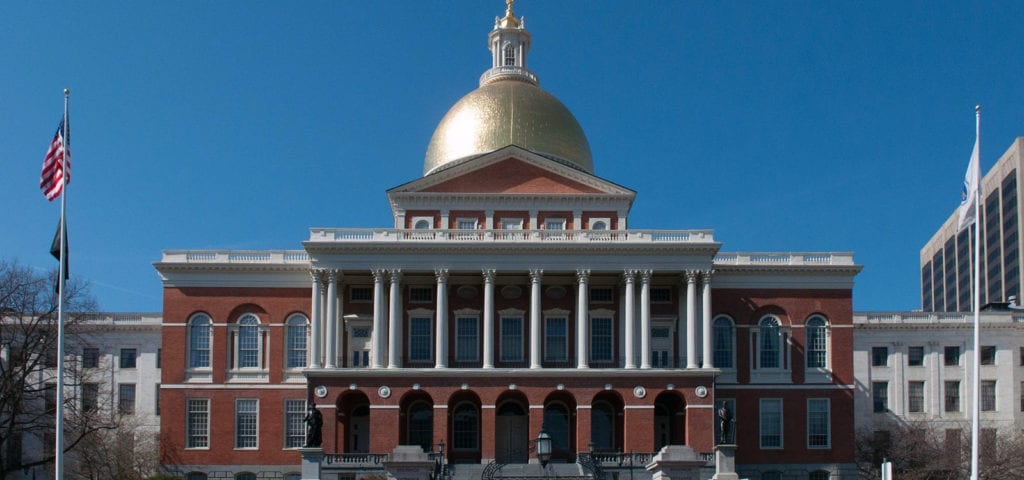Jack Hudson is the founder and CEO of Ermont Inc., a licensed medical cannabis company based in Quincy, Massachusetts.
Founded in 2013, Ermont is a medical cannabis operation that spans all aspects of the industry, including cultivation, production, processing, and retail. Ermont opened its dispensary’s doors in late 2016 and has already attracted local and national headlines — both inside and outside of the industry — for some of the company’s truly unique infused edible offerings, including personal pizzas, honey, and peanut butter.
In the following interview, we catch up with Jack to talk about Ermont’s business strategies, hiring policies, product development processes, and more!
Ganjapreneur: For someone new to medical cannabis and to Ermont Inc., what’s the most important thing they should know before coming in to make a purchase?
Jack Hudson: Although the Patient Services Agents at Ermont will spend as much time as needed during the first visit, it’s always helpful when a patient does some of their own research as to what medicine might best help relieve their symptoms.
In all areas of health care, not just in medical marijuana, patient education is an important part of successful treatments and outcomes. Part of that education comes through consultation with a doctor or, in our case, the cannabis experts in our dispensary, and part of it is self-education. We really encourage that for all patients.
With all of the consumption options in the modern industry — flower, concentrate, edibles — how do you decide which products you want to produce or sell?
We do of course offer the basic products you mentioned – flower, concentrate and edibles – and we are always listening to what our patients have to say about the type of consumption they’re looking for – or even think they’re looking for. There may be trends we can focus on for our particular patient population and market, or there may be a specific product to introduce.
That really comes through in our edibles menu which has a wide range of appealing marijuana-infused products. Here, too, we have the basics such as chocolates and fruit chews and lozenges, but our talented edibles staff, who come from Boston’s vibrant restaurant scene, have really stretched the boundaries for edible offerings in Massachusetts.
For example, you may have heard of the cheese pizza that we launched in June. This is a pre-baked, sold-frozen personal pie that patients can heat up. It provides an enjoyable way to consume a dose of medical cannabis. This product proved quite popular just by the very nature of combining pizza with marijuana, and there is a long list of culinary innovations from chipotle cornbread and peach cobbler, to vegan mayonnaise and hot wing sauce. Menu items come and go, just like at a restaurant, based on the tastes, so to speak, of our patients.
How many employees does Ermont have?
Fifty.
Also, what qualities do you look for the most when hiring and how much training do new employees typically need?
Because we are a registered medical marijuana dispensary serving patients with a retail-like storefront, customer service skills are crucial. Our employees must be solid in this area and they must be able to work in an environment where change is constant – this is still an emerging industry in Massachusetts after all. When hiring folks, we want to see a passion for the medical marijuana industry and the patients that we collectively serve.
What kind of experience or qualities did you look for when putting together your cultivation and production team?
Key for our employees is an ability to follow cultivation and production team leaders’ instructions and guidance. We also appreciate a willingness to learn, a clear passion for the industry, attention to detail and anyone who is a self-starter.
What are the most difficult and most rewarding parts of running a cannabis dispensary?
The most difficult aspects of running a cannabis dispensary operation stem from the remaining uncertainties surrounding the cannabis industry in general in Massachusetts. It is still a new and evolving industry overall, with a rollout of recreational marijuana on the horizon as well.
On the flip side, all of this is worth it when we witness the progress our patients have made through the use of medical marijuana. One such story involves a regular patient who always visited Ermont in a wheelchair – until one day he entered the dispensary using a walker. We were amazed to see this milestone, and so pleased when he attributed his improvement to the use of medical marijuana. Nothing is more rewarding than something like that.
What has been the most surprising part of running a medical cannabis operation so far?
The fact that the challenges and opportunities look just the way they do in other businesses, industries, and sectors. Also, having strong support from city government and the local community around Ermont have been critical in setting the stage for a successful operation.
With so many horror stories out there about the over-regulation of the cannabis industry at the municipal level, do you have any tips for fostering a good relationship with local officials?
As with any healthy relationship, regular communication, honesty and transparency are critical. We have been fortunate to have a strong relationship with officials in the city of Quincy; they understand our mission and appreciate our approach. We also strive to give back to the community, in part through our community host agreement with the city of Quincy that has generated funding for substance abuse education and a full-time substance abuse coordinator. We also launched Ermont Cares, a charitable initiative that donates proceeds from a designated product – infused chocolates – to a local organization. Our first beneficiary is DOVE, a domestic violence shelter.
Have you ever been surprised by the success or popularity of a specific product or type of product that you offered?
Offering edibles which can be consumed as part of a meal vs. a treat seemed to just make sense to our team. Yet we were still pleasantly surprised by the reception we received for certain products, such as hot chocolate in the colder months and everyday foods such as mac ’n’ cheese, muffins and quiches. The key, we believe, is to check in with our patients to get an idea of what they’re looking for at any given point.
About how much time goes into the R&D of new edible offerings?
Sometimes weeks, sometimes months, depending on the complexity of the product and the underlying recipe. Our edibles team spends a lot of time experimenting, just like chefs in a kitchen, and even before they pick up a spoon or turn on the stove, they are just talking things over conceptually, sort of like mapping out a restaurant menu. Just to give you an example, our cheese pizza product, which turned a lot of heads recently, took about two to three months from inception to finished product.
What was the biggest obstacle you have had to overcome so far?
“Obstacle” is a bit extreme but I would say that a challenge Ermont has faced since we opened in October 2016 would be keeping up with the rapid growth in patient volume.
What advice would you offer to someone who wants to launch their own career as a cannabis entrepreneur?
I’ll keep it simple: Hold onto your vision, because it’s easy to become distracted.
Thanks, Jack, for taking the time to answer our questions! To learn more about Jack Hudson or Ermont Inc., you can visit ErmontInc.org.
























